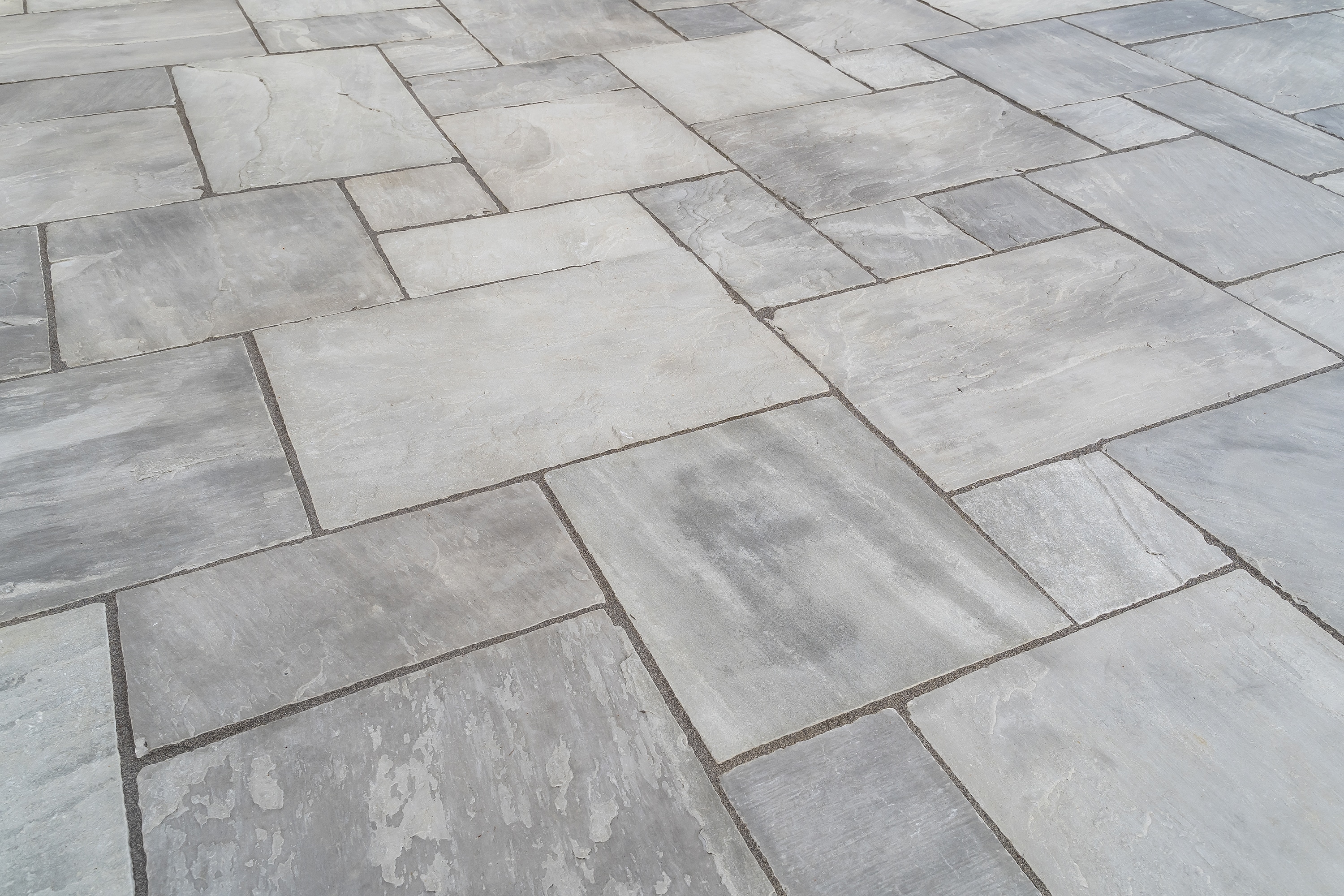
Black spot is lichen which thrives on stone surfaces in the damp and shady conditions that are so common in the UK. The characteristics of the lichen are that as it matures, it sends out tendrils (hyphae) into the pores of the stone seeking nutrients from the minerals in the stone and the detritus that collects on the patio. These gradually spread through the surface of the affected stone.
An example can be seen here on a recent customer’s sandstone patio:
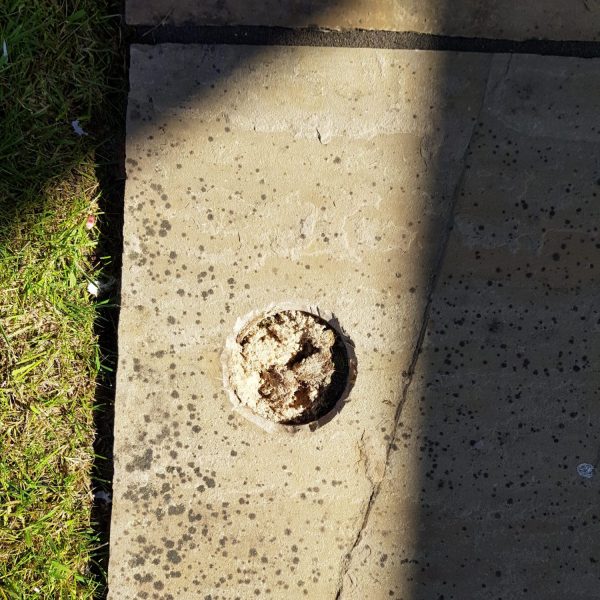
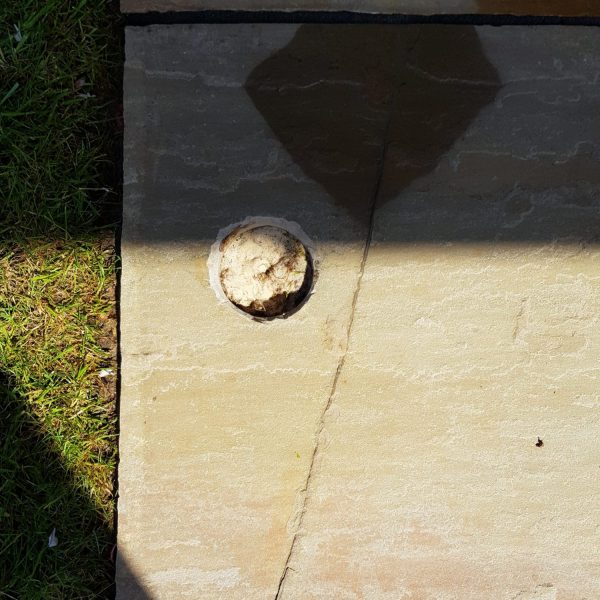
And here on a granite patio last year:
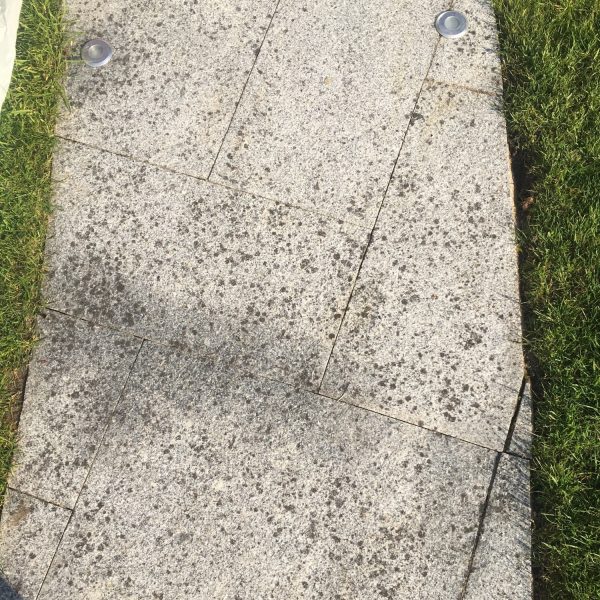
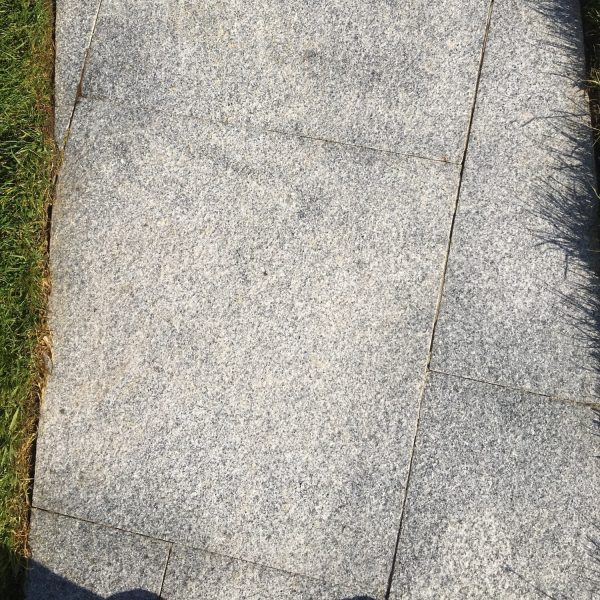
A far more effective method of killing and removing black spot, is to use a black spot remover for patio like Rob Parker’s Best Patio Cleaner. The product has been developed with chemists after researching the best way to kill the lichen to prevent new growth, and also remove the existing marks.
Our black spot remover for patio is effective in removing black spots and our customers are very satisfied. Rob Parker’s Best is a biocide which will get into the growth and kill the black spot permanently, but also has a bleaching agent which will bleach the blackness out of the visible black spot.
In order to work properly it is necessary to ensure that the Rob Parker’s Best Patio Cleaner – a black spot remover for patio – remains on the affected stone for at least an hour, and that during the treatment period the stone surface remains wet. The black spot remover can be used on all types of stone such as patios, driveways, and paths.
Sometimes, particularly stubborn deposits will remain on the stone after treatment.
Over time, now that there is no live lichen in the stone, these (bleached) dead deposits will loosen, and the next time the patio is power washed, any remaining lichen deposits will be removed and the stone surface will become as clean and brilliant as it was when first laid.
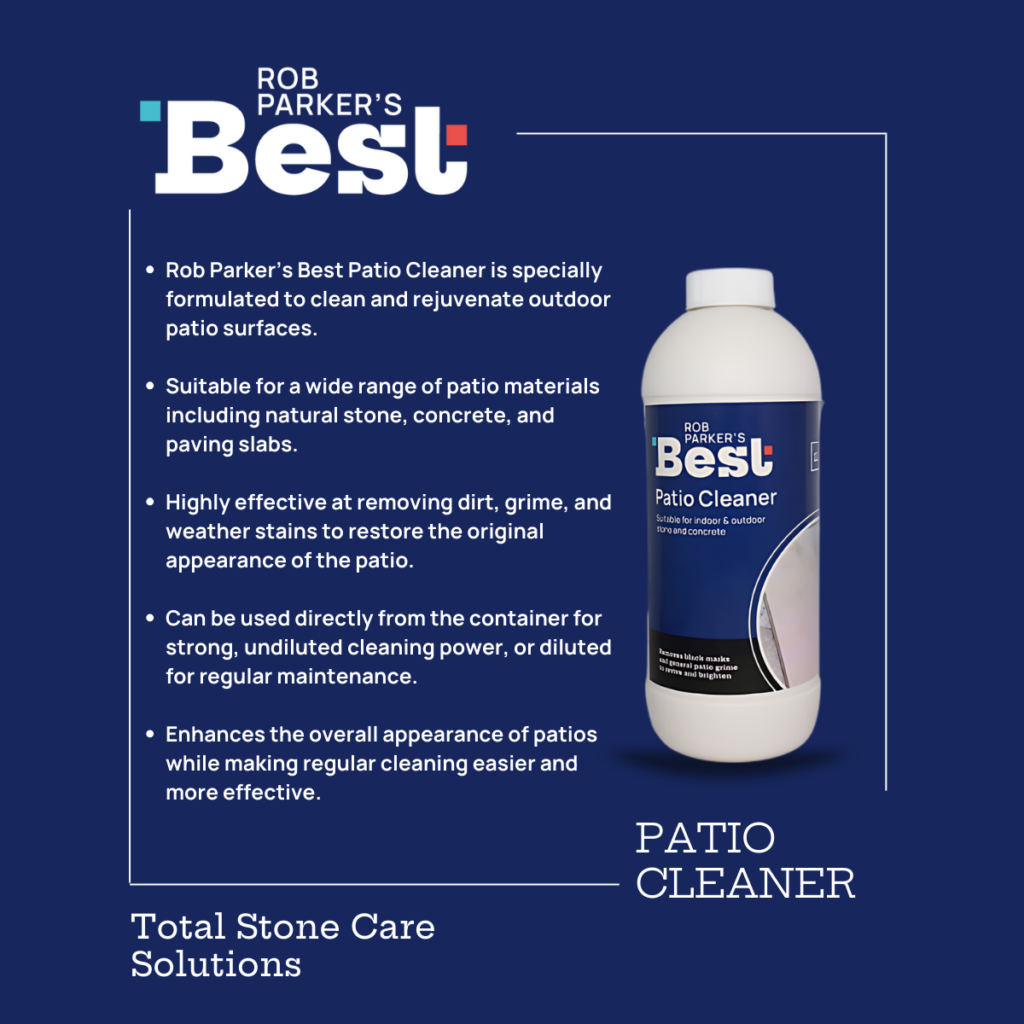
Stones More Prone to Black Spot
Stones with a looser, more porous structure offer the perfect environment for black spot to take hold. One of the most commonly affected is:
Sandstone – Naturally has a more open texture and larger pores, making it far more likely to show signs of black spot, especially in damp or shaded conditions.
Stones Less Affected by Black Spot
Some stones have a tighter grain and denser structure, reducing the opportunity for black spot to develop. These include:
Kota Brown
Kota Blue
Black Limestone
Tundra Grey Limestone
These Indian limestones are close-grained, offering fewer entry points for black spot spores to take hold.
| Stone Type | Susceptibility to Black Spot | Notes |
|---|---|---|
| Raj Green | Low | Dense and close-textured; better quality versions are highly resistant |
| Black Sandstone | Low to Moderate | Slightly affected due to darker colour and tighter grain |
| Kandla Grey | Moderate | More open in texture than darker stones |
| Modak | Moderate to High | Lighter colour, more porous |
| Mellow Yellow | High | Pale tones and porous surface increase susceptibility |
| Fossil Mint | Very High | Lightest colour and largest pores; often worst affected, especially in damp, shady areas with plant growth |
In the first 1–2 years after a stone surface has been laid, any black spot growth may appear to be a minor, surface-level issue. At this early stage, it’s common for homeowners or landscapers to remove the visible staining with pressure washing or a light stone cleaner, often achieving what seems like a clean finish.
However, this approach only removes the visible black spot — not the root of the problem.
Over time, black spot lichen sends microscopic filaments called hyphae deep into the pores of the stone. These hyphae form a kind of root system, allowing the lichen to:
Reappear more quickly and more aggressively after each wash
Anchor itself securely within the stone
Resist surface cleaning methods
The use of a high temperature, low pressure steam cleaner (such as Doff) will kill the black spot but unfortunately will not always remove the more stubborn black marks on the stone.
If you have any questions about how to remove black spot from patios or paving, contact our team using the link.
If you have any questions or would like to talk to one of our team, please call us on 01844 279274 or email us at sales@stoneworld.co.uk and we will be happy to help you.
Last updated: 16/08/2024